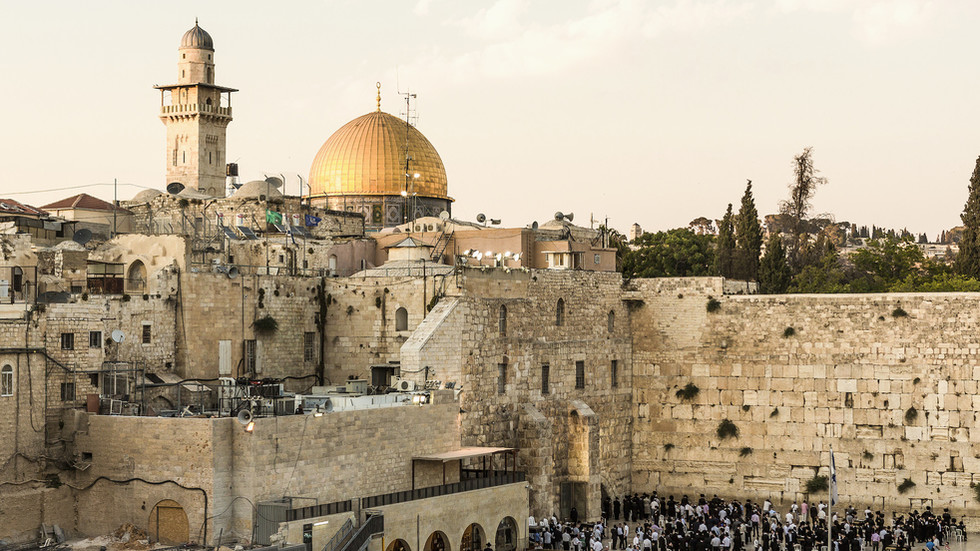
The announcement of the new office bolsters Israel’s efforts to legitimize the city internationally as its capital

FILE PHOTO © Getty Images / Atlantide Phototravel
Russia plans to establish a branch of its Israeli embassy in Jerusalem, the Foreign Ministry revealed on Friday. The new outpost, which an official statement described as a “branch office of the Consular Section of the Russian Embassy in Israel,” cements Moscow’s claim to the land on which it is situated.
Located on the corner of King George and Ma’alot streets in downtown Jerusalem, the property – currently a parking lot – will feature a residence for Russian diplomats as well as a conference hall, the Foreign Ministry confirmed, describing the agreement it signed with Jerusalem last month as a “diplomatic achievement.”
“We believe that this step fully serves the interests of further strengthening friendly multifaceted relations between Russia and Israel, as well as goes in line with our country’s unchanging course towards a fair Middle East settlement,” the Russian Embassy said in a statement on Friday.
Russia claims ownership of dozens of properties in Jerusalem, some of which are mired in long-running legal disputes. While Israeli PM Benjamin Netanyahu had promised the best-known of these, the Alexander Courtyard, to Russia, his decision was overruled in court in 2022. The situation remains unresolved despite a personal request by Russian President Vladimir Putin to former PM Naftali Bennett last year.

Read more
Since the US moved its Israeli embassy from the internationally-recognized capital Tel Aviv to the disputed city of Jerusalem in 2018, a handful of countries have also transferred their embassies there, including Guatemala and Honduras, with several more promising to follow suit.
Hungary is said to be in the process of expanding its Jerusalem trade office to embassy status, which would make it the first EU country to do so, though the government has neither confirmed nor denied that claim by Israeli Foreign Minister Eli Cohen.
While Israel has gone to great lengths to avoid being seen as choosing sides in the conflict in Ukraine, the country has voted with Kiev on UN resolutions and contributed humanitarian and defensive aid. Thus far, it has stopped short of supplying actual weapons systems to Ukraine, however.




